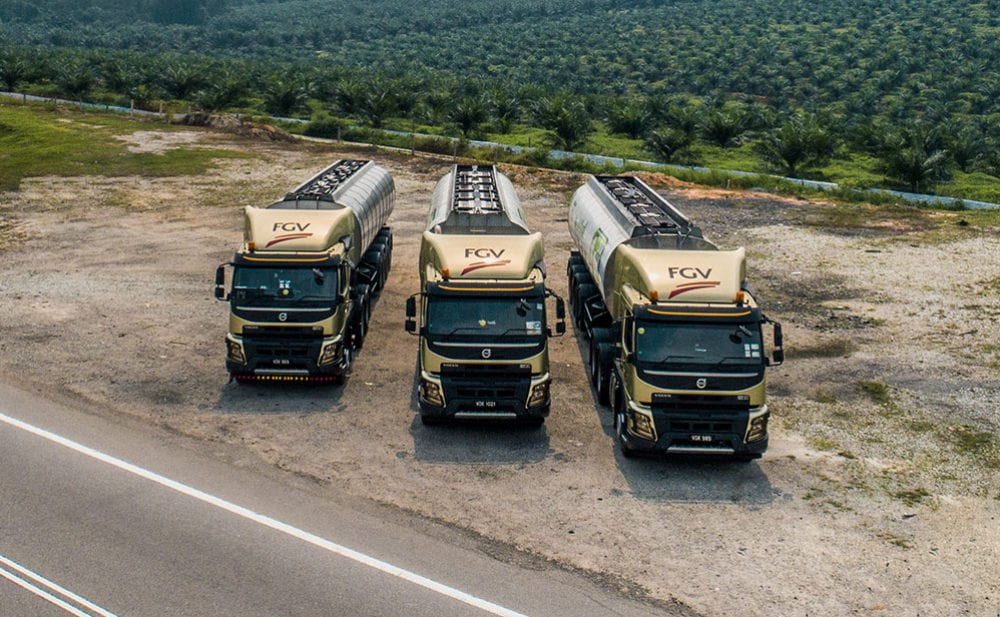FGV’s Renewable & By-products division is the backbone of the Group’s Waste-to-Wealth initiatives. FGV utilises biomass (gas, solid, liquid) at its palm oil mills to produce biogas fuel for national, rural grid connections and bio-compressed natural gas (bio-CNG). We have consistently embarked on renewable energy initiatives since early 2000.
The division, which is under FGV Palm Industries (FGVPI), consists of by-products, renewable energy and zero investment projects relating to biomass produced from palm oil mills. It is has three units, namely By-Products, Renewables and Business Development.
Our By-Products unit manages sales, sourcing, pricing, hedging, freight planning, arbitraging and other by-product trading-related activities. We execute trading transactions to ensure products meet customer’s requirements and are delivered efficiently.
Our Business Development is a unit develops, strategises and manages existing BOO projects and explores new business opportunities for biomass including biogas to FiT, bioCNG, hexane red oil extraction and various other potential products from palm oil mills.
Our Renewables unit manages the operations of FGV’s five biogas plants for Feed-in-Tariff (FiT) projects, bioCNG plants and biogas plants for rural electrification. Additionally, we also manage the Sahabat Biomass-EFB Power Plant in FELDA Sahabat (7.5 MW) for rural electrification and internal power, and FTJ Power Plant-EFB in FELDA Jengka (12.5 MW) for the FiT project, including co-composting plants, and EFB shredded stations.
There are 3 rural townships in Sabah powered by electricity produced from biomass-renewable energy source managed by us, namely Sahabat Biomass-EFB Power Plant, Baiduri Ayu Biogas Plant, and Umas Biogas Plant. They provide power to the township areas of FELDA Sahabat, FELDA Cenderawasih, and FELDA Umas, respectively.
We have reduced more than 100,000 tonnes of Carbon Dioxide equivalent through our initiatives such as methane capturing and destruction using our Biogas and BioCNG plants, as well as fossil fuel (diesel) replacement.
The Journey
Key Initiatives

Rural Electrification
Biogas is used as a diesel substitute to generate electricity for local grids, Gugusan Umas and Baiduri Ayu, reducing power generation cost as well as displacing fossil fuel. In addition, the projects are able to generate up to 24 hours to suit the load and demand fluctuations for a rural mini grid. This project also helps to preserve nature and river cleanliness, empowering community to improve their quality of life.

National Grid
Biogas is utilised as fuel for electricity generation via gas engines to supply electricity to National Grid through Feed-In-Tariff (FiT) mechanism governed by SEDA Malaysia. FGV has always heeded calls from the government to champion renewable causes. For example, Serting Hilir is the first FiT project in Malaysia to achieve COD in 2006. FGV has continued constructing the projects over the years, with Tenggaroh, Maokil and Nitar achieving COD with a total installed capacity of 4.0 MW in 2016 and recently Triang (scheduled for IOD in February 2020) and Keratong 9 (scheduled for IOD in April 2020).
Renewable Energy Plants
Biogas Plants
Composting Plants
EFB Power Plant
Extraction Plant
By-products
Oil Palm By-Products are obtained as by-products or residues from palm oil processes. The main products produced by the palm oil mills are crude palm oil and palm kernel. However, it also produces huge quantities of residues such as sludge palm oil, mesocarp fibre, palm kernel shell and empty fruit bunches. Dry residues from oil palm wastes can be utilised to produce various type of products. Palm By-Products main principal use is in the manufacturing of of quality soaps, animal feed, biofuels, among many others. It is widely used in various industries, such as in the manufacturing of candles, cosmetics, toiletries and pharmaceutical products.



